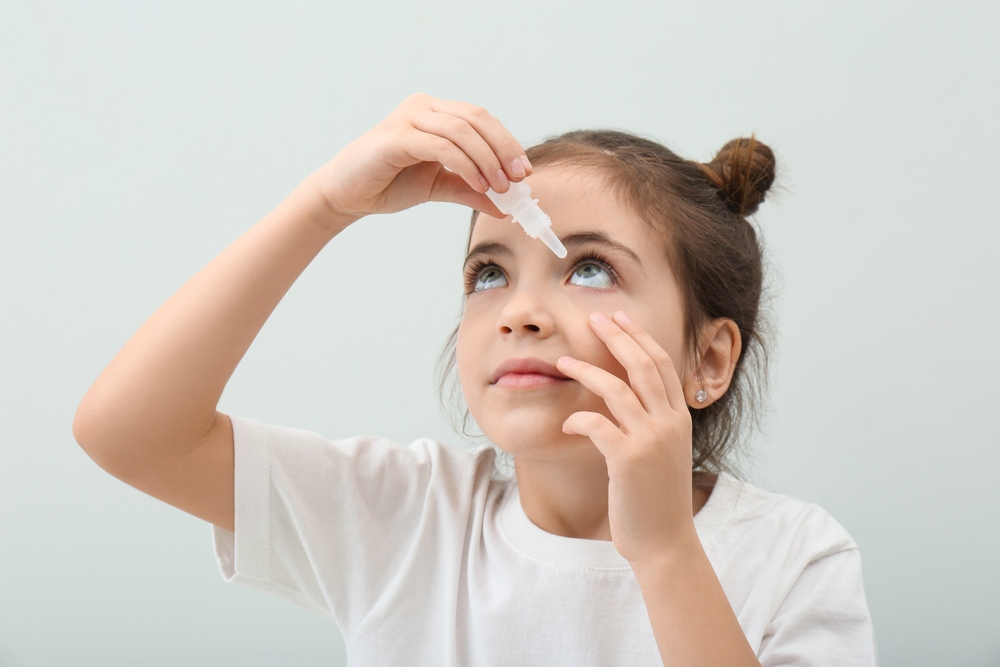
Myopia, commonly referred to as nearsightedness, is a vision condition that affects millions of children worldwide. If your child struggles to see objects clearly at a distance, you may have encountered this term. Myopia often progresses during childhood, making early detection and management essential for maintaining long-term eye health. One increasingly popular treatment option for managing myopia progression is atropine eye drops.
What Is Myopia?
Myopia is a refractive error that occurs when the eyeball grows too long or the cornea is overly curved, causing light to focus in front of the retina instead of directly on it. This results in blurred distance vision.
Children with myopia may exhibit symptoms such as:
Squinting to see distant objects
Complaints about blurry vision, especially when looking at the board in school
Holding books, tablets, or screens very close to their eyes
Frequent headaches or eye strain
Difficulty seeing while playing sports or watching TV
If you notice these signs, scheduling a comprehensive eye exam is the first step toward understanding your child’s vision needs.
The Importance of Regular Eye Exams
Early detection is critical for managing myopia. Children’s eyes grow rapidly, especially during their early school years, and untreated myopia can worsen quickly. Regular eye exams allow your eye doctor to identify myopia early and develop a personalized management plan to slow its progression.
Why Is Myopia Management Important?
Myopia management is about more than just correcting vision with glasses or contact lenses. Left unmanaged, myopia can increase the risk of serious eye conditions later in life, such as retinal detachment, glaucoma, and myopic maculopathy. By addressing myopia during childhood, you can help protect your child’s long-term eye health.
The Role of Atropine Eye Drops in Myopia Control
Atropine eye drops have emerged as a highly effective tool for managing myopia progression in children. Atropine is a medication that, when administered in low doses, helps slow the growth of the eye. This reduces the elongation of the eyeball, which is a primary cause of myopia progression. Unlike higher doses used for other medical purposes, low-dose atropine causes minimal side effects.
Benefits of Atropine Eye Drops
Slows Myopia Progression: Studies have shown that atropine can reduce the progression of myopia by up to 60%.
Safe and Well-Tolerated: Low-dose atropine drops have been found to have few side effects, making them a safe option for children.
Customizable Treatment: The dosage can be adjusted based on your child’s specific needs, ensuring optimal effectiveness.
Reduces the Risk of Future Complications: Slowing myopia progression helps lower the risk of eye diseases associated with high myopia in adulthood.
Is Atropine Right for Your Child?
Atropine eye drops are not a one-size-fits-all solution. The decision to use atropine depends on various factors, including the child’s age, degree of myopia, and how quickly the condition is progressing. During a consultation, our eye doctor will evaluate your child’s eyes and discuss whether atropine is the right choice as part of their myopia management plan.
Partnering with InnoVision Optometry for Your Child’s Eye Health
We are committed to protecting your child’s vision and ensuring they enjoy a lifetime of healthy eyesight. Regular eye exams and proactive myopia management, including treatments like atropine eye drops, can make all the difference in slowing myopia progression and reducing future risks.
To learn more about myopia management, schedule a your child’s eye exam with InnoVision Optometry and discover if atropine eye drops are the right solution. Visit our office in Rowland Heights, California, or call (626) 593-8700 to book an appointment today.









